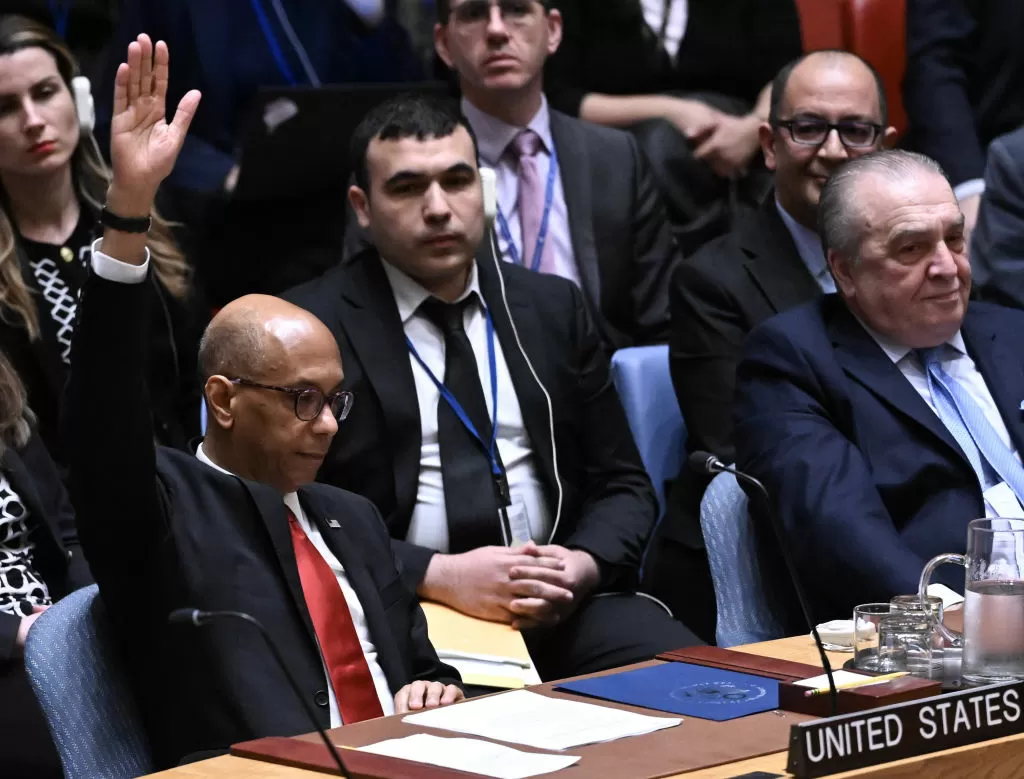The recent conflict between Israel and Gaza has once again brought the issue of the Security Council veto to the forefront. As global divisions continue to sharpen, the use of the veto power has triggered a backlash, with many questioning its effectiveness and fairness. The ongoing war in Gaza has only added fuel to the fire, with the veto being used to block any meaningful action by the international community. This has raised concerns about the role of the Security Council in promoting peace and stability in the world.
The Security Council veto, which gives the five permanent members (China, France, Russia, the United Kingdom, and the United States) the power to block any resolution, has been a subject of debate since its inception. While it was intended to prevent any one country from dominating the Council, it has often been used to serve the interests of the powerful nations. This has led to accusations of bias and double standards, especially when it comes to issues related to Israel.
The recent war in Gaza has once again highlighted the flaws in the Security Council’s decision-making process. Despite the overwhelming support for a ceasefire from the international community, the United States, a close ally of Israel, has repeatedly used its veto power to block any resolution that would hold Israel accountable for its actions. This has not only hindered efforts to end the violence but has also caused frustration and anger among the other members of the Council.
The use of the veto power in the Israeli-Palestinian conflict is not a new phenomenon. In fact, the United States has used its veto power over 40 times to protect Israel from any criticism or condemnation by the international community. This has created a sense of impunity for Israel, allowing it to continue its illegal occupation and human rights violations without any consequences. The veto has also hindered the peace process, as it has prevented the Council from taking any meaningful action to resolve the conflict.
The ongoing war in Gaza has once again exposed the flaws in the Security Council’s decision-making process. The Council’s failure to take any action to stop the violence and protect innocent civilians has been met with widespread condemnation from the international community. Many have called for reforms in the Council, including the removal of the veto power, to ensure a more fair and effective decision-making process.
The use of the veto power in the Israeli-Palestinian conflict has also sparked protests and demonstrations around the world. People from all walks of life have come together to demand an end to the violence and the use of the veto to protect Israel. This global backlash against the veto is a clear indication that people are no longer willing to accept the status quo and are demanding change.
The Security Council veto has also caused divisions among the member states, with some questioning the relevance and effectiveness of the Council in today’s world. The use of the veto has often been seen as a tool for the powerful nations to maintain their dominance and protect their interests, rather than promoting peace and stability. This has led to calls for a more democratic and inclusive decision-making process in the Council, where the voices of all member states are heard and considered.
In conclusion, the ongoing war in Gaza has once again brought the issue of the Security Council veto to the forefront. The use of the veto power has triggered a backlash and raised concerns about its effectiveness and fairness. It is high time for the international community to come together and demand reforms in the Council to ensure a more fair and effective decision-making process. The world cannot afford to sit back and watch as innocent lives are lost and the conflict continues to escalate. It is time for the Security Council to fulfill its responsibility and work towards a just and lasting solution to the Israeli-Palestinian conflict.


